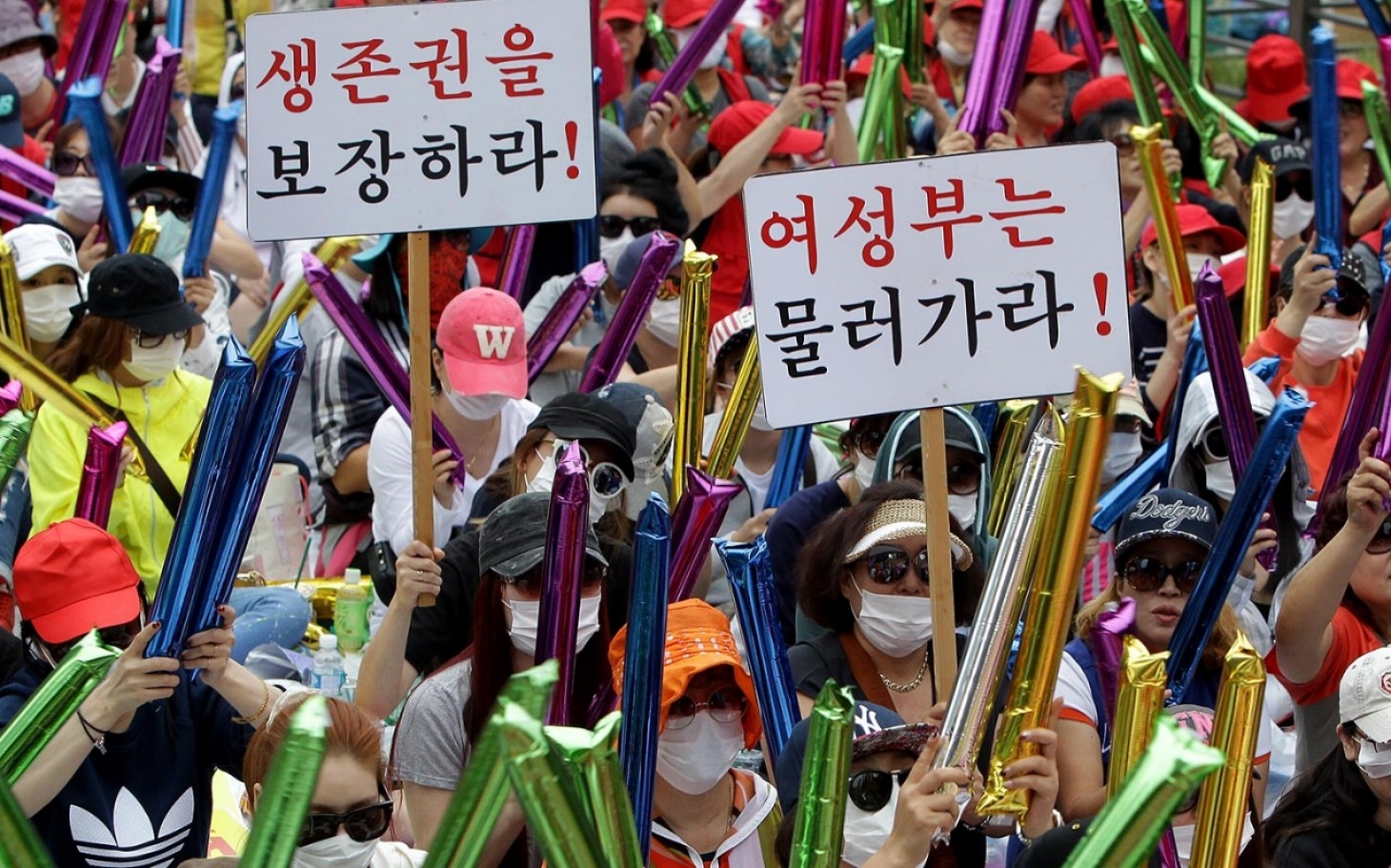Kuosmanen: Sex Purchase Act Creates False Optimism
 Questioning the Sex Purchase Act: Jari Kuosmanen, associate professor in the Department of Social Work at the University of Gothenburg, says that supply and demand for sexual services in Sweden has not declined since the late 1990s. Photo: Åbo Underrättelser. All Rights Reserved.
Questioning the Sex Purchase Act: Jari Kuosmanen, associate professor in the Department of Social Work at the University of Gothenburg, says that supply and demand for sexual services in Sweden has not declined since the late 1990s. Photo: Åbo Underrättelser. All Rights Reserved.
About this translation
In 2014, the European Parliament, the Northern Ireland Assembly, and the Canadian Parliament all voted in favour of laws to criminalise the purchase of sexual services, a measure commonly referred to as the Swedish Model. Meanwhile, the Select Committee of the French Senate, the House of Commons of the United Kingdom, and the Justice and Electoral Committee of the New Zealand Parliament rejected such a move.
Advocates for the Swedish Model claim that the law has led to declining numbers of buyers and sellers of sexual services. However, according to Ann Jordan from the American University’s Center for Human Rights and Humanitarian Law, the Swedish government doesn’t actually know “whether the law caused any reduction in the number of sex buyers, sex workers, trafficking victims or migrant sex workers”. As Jordan explains, claims of its ‘success’ lack reliable evidence, and the source of such claims “is primarily the government’s initial and short English-language summary”.
While street-based sex work dropped initially, Jay Levy and Pye Jakobsson argue that research suggests it has since returned to previous levels, and that it remains unclear if the initial decline was caused by the law or other factors. With regards to the alleged decline of sex buyers, Swedish researchers Susanne Dodillet and Petra Östergren point out that the aforementioned English-language summary cites a survey, which suggests that fewer men had bought sex compared to a 1996 study, but crucially omits the reservations expressed by the very person who conducted it: Jari Kuosmanen. While advocates of the Swedish Model and anti-prostitution activists continue to cite his findings as evidence supporting their views, Kuosmanen explains in this interview the lack of evidence of the effectiveness of the law.
Please note that the copyright for this article lies with Åbo Underrättelser and is not licensed under a Creative Commons License.
Sex Purchase Act Creates False Optimism | By Dan Lolax
Finnish politicians who want to follow Sweden’s approach and introduce a total ban on buying sex should think twice. There is nothing to support the claim that prostitution in Sweden has decreased since the country established the law in 1999, says Jari Kuosmanen, associate professor at the University of Gothenburg, who was the first to evaluate the effects of the law. According to him, the problem is that politicians didn’t base the legislative change on research.
That the law regarding the purchase of sex is described as a success is a statement based on assessments by the police and social services. “It gives a completely false image of supply and demand for sexual services. Street prostitution has gone down, yes, and it is now dominated by Eastern European and African women. But hidden prostitution is difficult to access”, says Kuosmanen, adding that even before the amendment, two-thirds of prostitution occurred indoors.
Overall, the Swedes feel positive about the ban on buying sex. Approximately seventy percent support it, more women than men, but that does not mean that the Swedes think that it has any effect, he says, referring to his evaluation. The effects have not so much to do with the law as it has to do with police resources, says Kuosmanen. The number of arrests per year varies, sometimes there can be as many as three hundred.
If the police, after lengthy investigations, manages to blow up a trafficking ring it will create good statistics. Many clients confess right away to avoid a trial and public shame, says Jari Kuosmanen. “But such crackdowns were possible even before the amendment because pimping was not allowed before 1999.”
Prostitution in Sweden has become a political issue, for better or for worse, he says. There are politicians who travel to Nordic countries and praise the law without having any evidence of its success. Instead of basing their statements on research, politicians cite the government’s assumptions, which according to Kuosmanen, are often biased.
His colleagues and him were thwarted by social welfare authorities when they proposed to establish a prostitution research centre. “The risk is of course that we researcher find something out that goes against the purpose of the law.”
In the evaluation of the law in 2010, two years after Jari Kuosmanen’s research on the effect of the law, the working group consisted of lawyers only. “The impression one got was that the instructions were: ‘Do as you please, just don’t do anything to undermine the law.’”
The reason that he doubts that the law has had the effect politicians claim it does is that the scope of supply does not seem to have decreased. The proportion of Swedish men who bought sex was ten percent, according to Kuosmanens evaluation report in 2008. That figure was a drop compared to 1996, when it was thirteen percent. “But when the question was asked in 1996, buying sex was not illegal as it is now. And how many will admit that they committed a crime?” Seventy percent of the men who buy sex do it abroad. This figure has not changed since the Act came into force.
Jari Kuosmanen’s message to Finnish politicians is to not forget that prostitution is a multifaceted phenomenon. There is not an overall agreement among researchers in Sweden, he admits, but some of them cannot with a clear conscience say that the law had an effect. What Kuosmanen can say is that prostitution can not only be met with legislative changes. “Prostitution has so many faces. There are miserable experiences, but there are also others.”
Right now, Kuosmanen is conducting research on male sex workers and people who engage in sex work as a kind of rebellion to go against the mainstream, have fun and make money. His point is that issues regarding prostitution must be allowed to be seen as complex as any other societal issues.
“If authorities and politicians try to create some uniform picture, their credibility disappears”, says Kuosmanen, and urges Finnish politicians to do proper research before any change of the law. Only in this way can the legal effect be determined and properly evaluated.
This article was written by Dan Lolax and published by Åbo Underrättelser, a newspaper in Åbo, Sweden. Click here to view the Swedish original. Please note that the copyright for this article and the photo above lies with Åbo Underrättelser and is not licensed under a Creative Commons License. The photo below did not appear in the original article.
Translation by Anonymous. Every effort has been made to translate this article verbatim. However, on some occasions, the wording and word order were slightly altered for better understanding.
Photo: Sign used during the protest by sex workers and allies against the introduction of a sex purchase ban in Northern Ireland. © 2014 Matt Lemon Photography | Please read the copyright notice









Pingback: That Was the Week That Was (#448) | The Honest Courtesan
Pingback: Kuosmanen: La loi contre l’achat de sexe crée un faux optimisme | Research Project Korea